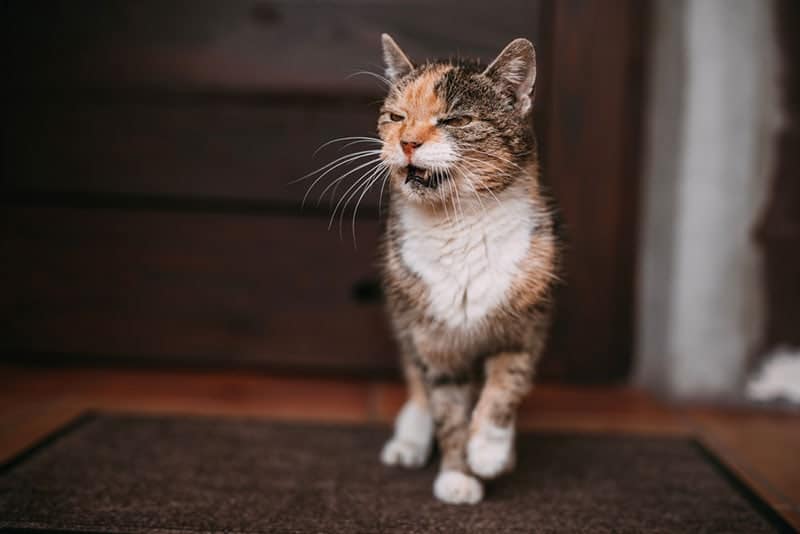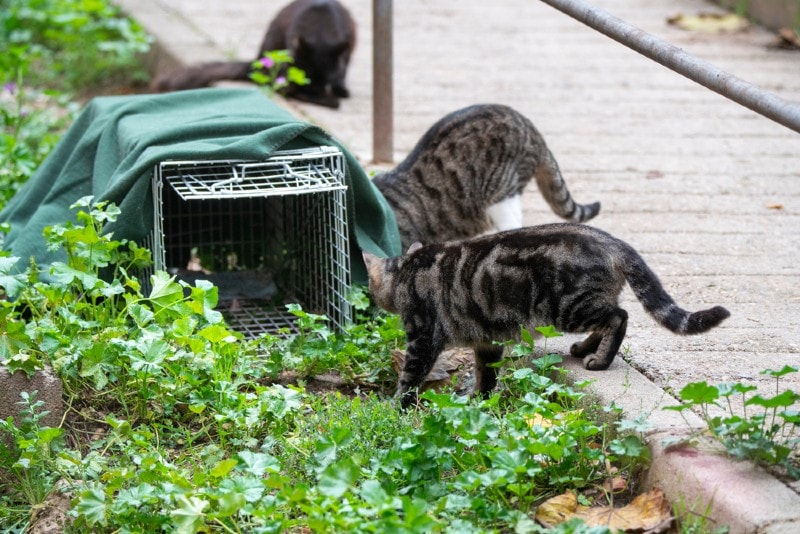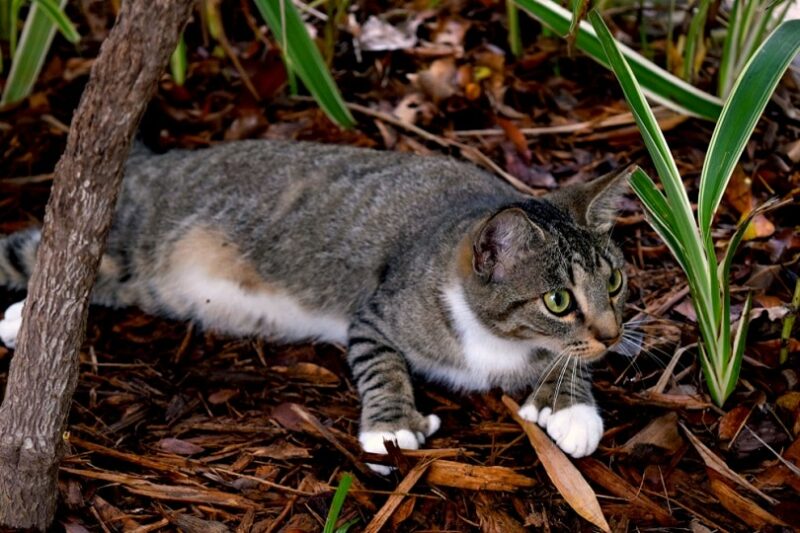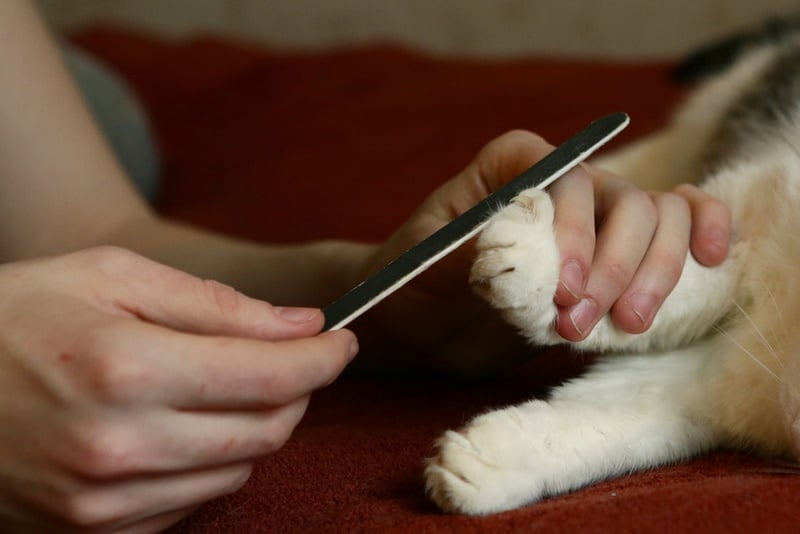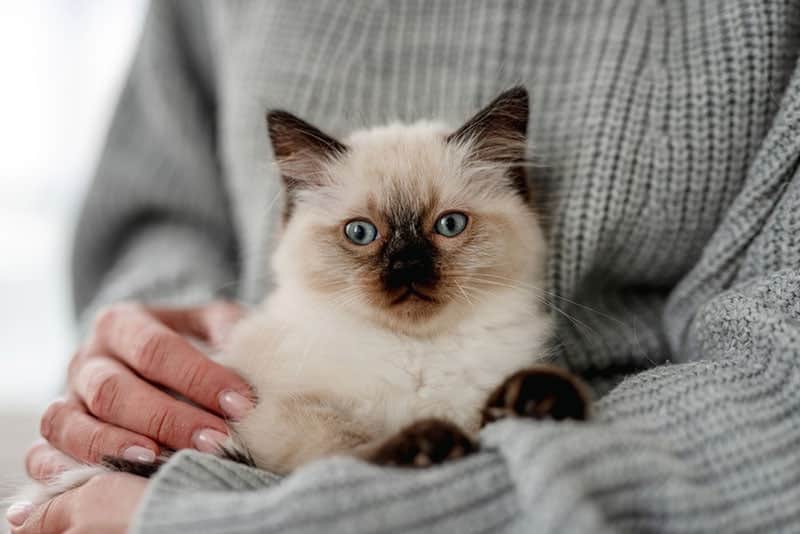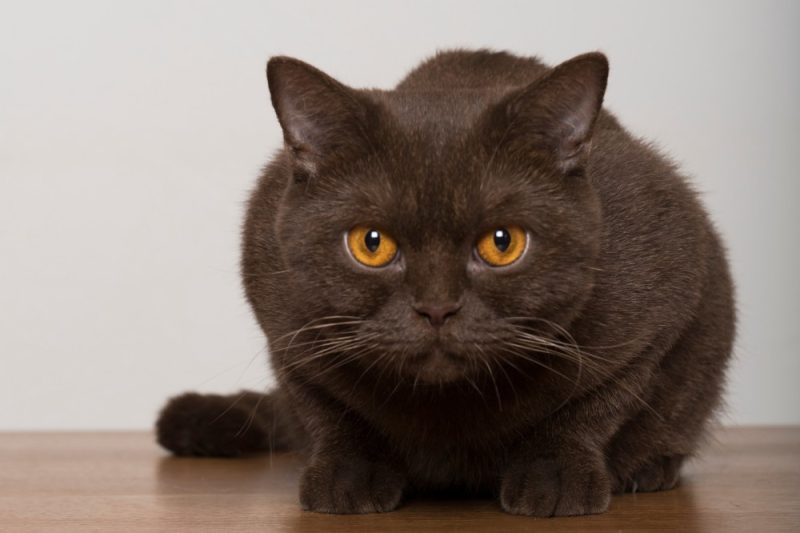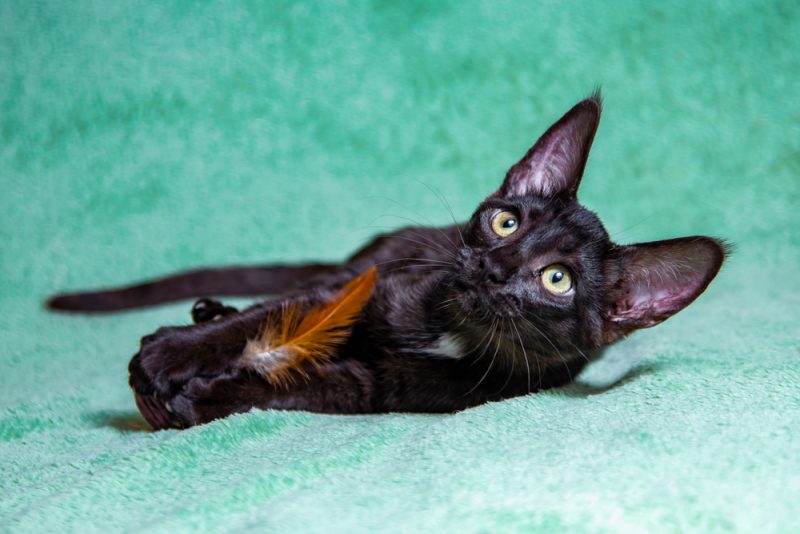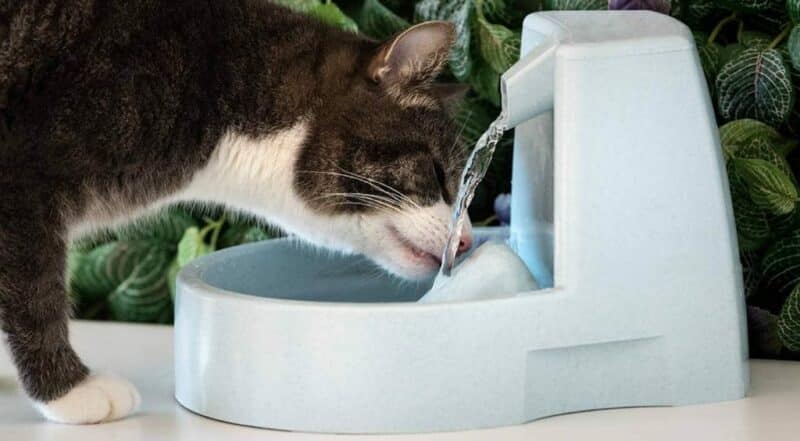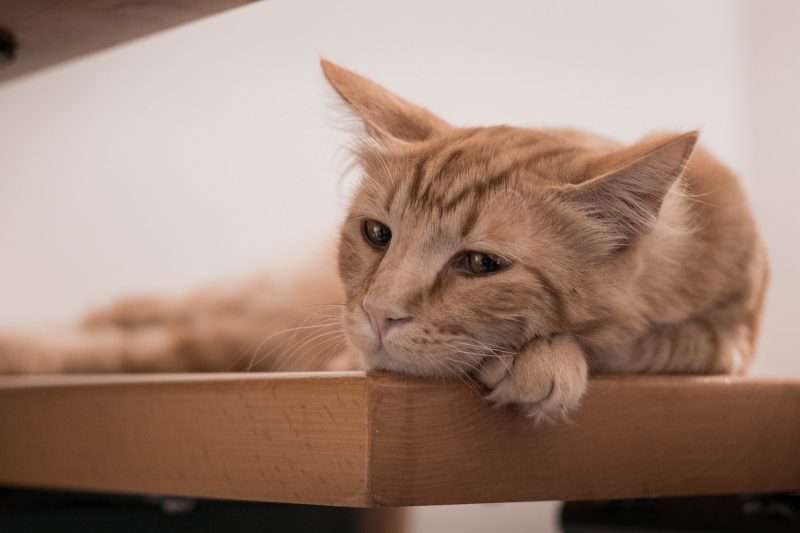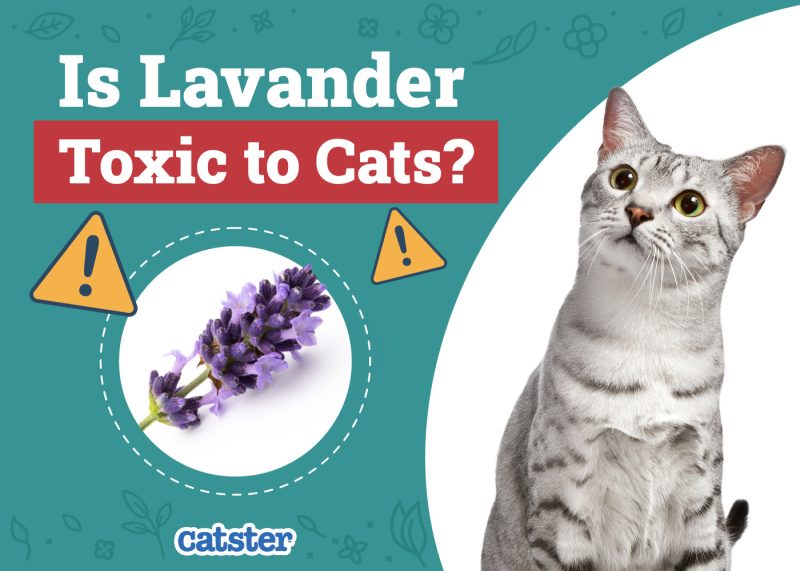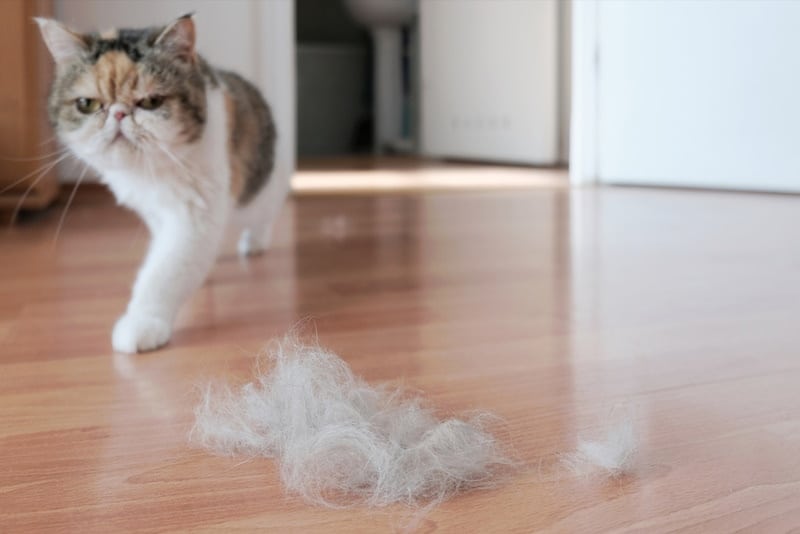Cats are often reluctant to interact with visitors. Some hang back and monitor their environments until they become comfortable enough to join the activities. Others make themselves scarce and stay hidden until the coast is clear. Some cats also react aggressively towards guests.
Aggression toward visitors is usually linked to fear, but it can also occur when cats become too excited while playing or annoyed with how they’re being petted. Territoriality can be another cause, but it’s rarely responsible for aggression toward people.
Maternal instincts can cause queens to lash out at people who get too close to their kittens. Medical issues can sometimes cause aggression in cats, so it’s important to have your feline checked out by a veterinarian to ensure they’re not sick or injured. Keep reading to learn more about why cats become aggressive toward guests and how to address the problem.

The 5 Reasons Why Your Cat Is Aggressive Toward Guests
1. Fear-Based Aggression

Fear-based aggression can occur when cats become scared by unfamiliar things, such as new people or animals. Cats on the verge of becoming aggressive due to fear often hiss and pin their ears back against their heads. Their fur sometimes stands on end, and many curl their tails close to their bodies.
Staying away from triggering situations is the easiest way to avoid fear-based aggression incidents involving visitors. Allowing cats to take the lead in interactions reduces the likelihood of problems. Make sure guests know to wait for your cat to approach them and allow them to move on when they want to. Pheromone products are also available that can help keep kitties calm in stressful situations. Desensitization training may also help some cats, but the process takes time to work. Cats sometimes become overexcited while playing. Boredom and a lack of stimulation can contribute to the behavior. It can cause cats to stalk people and pounce on them from hiding places. Riled-up cats often thwack their tails and pull their ears backward. Dilated pupils are another sign that a cat is stimulated, and the behavior is common in younger cats. Hiding and pouncing incidents can be managed by restricting your cat’s access to places from which they like to launch attacks. Providing them with toys and games to keep them engaged helps reduce the boredom and release their pent-up energy. Window perches allow cats to relax and keep an eye on what’s going on outside, which can keep them mentally engaged. Regular play sessions also give them appropriate ways to get rid of pent-up energy and engage their instincts. Cats sometimes lash out when being petted. While the exact reasons behind petting-induced aggression aren’t entirely clear, there are suggestions it could be related to overstimulation or a way for cats to end interactions. Cats that want to move away from petting tend to twitch their tails, move their ears backward, and have dilated pupils. They might give the person stroking them a gentle bat away with their paw as a warning, and if petting doesn’t cease, the next step might be a nip or a scratch. It’s best to ensure your guests know the signs that your cat is no longer interested in being petted and understand the importance of allowing them to move on when they wish. You can also let visitors know to stay away from sensitive places like your cat’s paws or tummy. Extra precautions should be taken with particularly young visitors, as children sometimes have trouble recognizing the signs that cats would like to be left alone, which can lead to unfortunate situations. Cats are territorial creatures, and some are unhappy when uninvited visitors make appearances. Territorial aggression involves chasing, attacking, and swatting at people they want to move away. Although cats sometimes unleash attacks on people due to territorial aggression, it more commonly plays out between pets in multi-cat households. Pheromone products can reduce the amount of stress cats feel, helping them feel more at ease, which may lead to more laid-back conduct. Behavioral specialists can also help pet parents come up with comprehensive plans to address complicated behavior. Mother cats generally prefer to spend the first weeks after giving birth in calm, quiet environments where they can care for their babies without being disturbed. They sometimes lash out if people get too close for comfort, especially people that they don’t know and trust. Maternal aggression can usually be addressed by ensuring queens have safe, peaceful places to nest and keeping visitors away until the kittens are older. Leaving queens and kittens alone usually solves the problem. Cats can become aggressive due to several conditions, including hyperthyroidism, dental disease, and arthritis. Central nervous system issues can also be a cause. Prevention is the best way to keep cats from becoming aggressive towards visitors, and it’s vital to recognize the signs that your cat is stressed. Rewarding good behavior and ignoring bad is a great way to encourage cats to change their ways. Harsh corrections and punishments never work when training cats, and they can actually lead to increased aggression. Many cats are less than enthusiastic about interacting with people who invade their territory. While some manage to interact peacefully with new people, there are others who become aggressive toward visitors. Fear is often behind the behavior, but it can also happen when cats become overstimulated while playing or have reached a limit with respect to being petted. Territorial and maternal aggression can also be causes of unwanted behavior. Aggression in cats can be linked to physical issues, so it’s always important to have your cat checked out by a veterinarian to ensure there’s nothing wrong. Allowing your cat to take the lead in all interactions and using calming pheromone products are just two ways to encourage peace between your cat and guests. Featured Image Credit: Anna-Kraynova, Shutterstock
2. Play-Induced Aggression
3. Petting-Induced Aggression
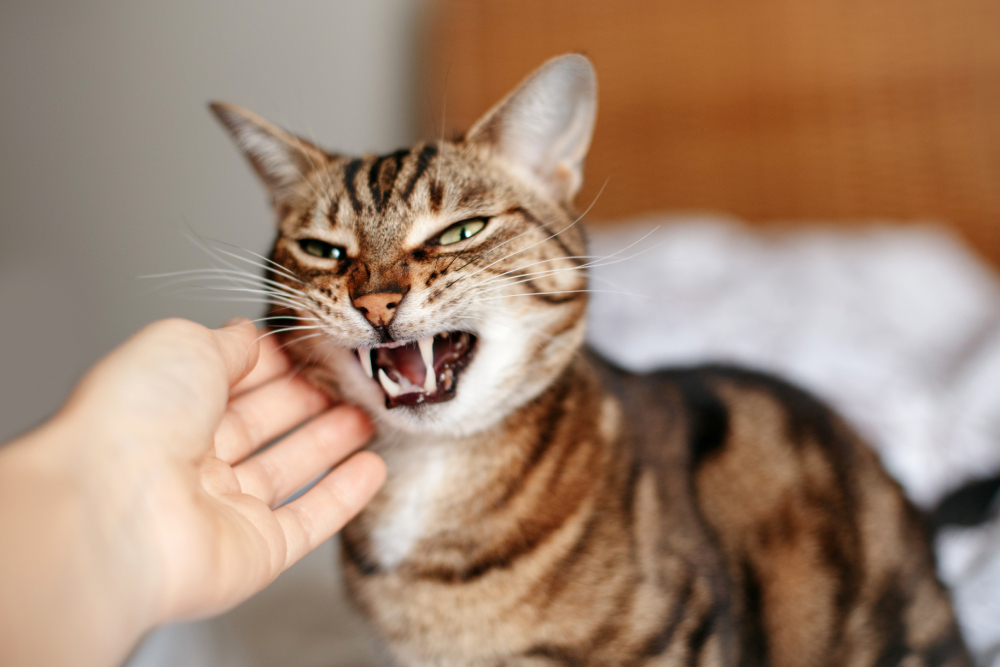
4. Territorial Aggression
5. Maternal Aggression
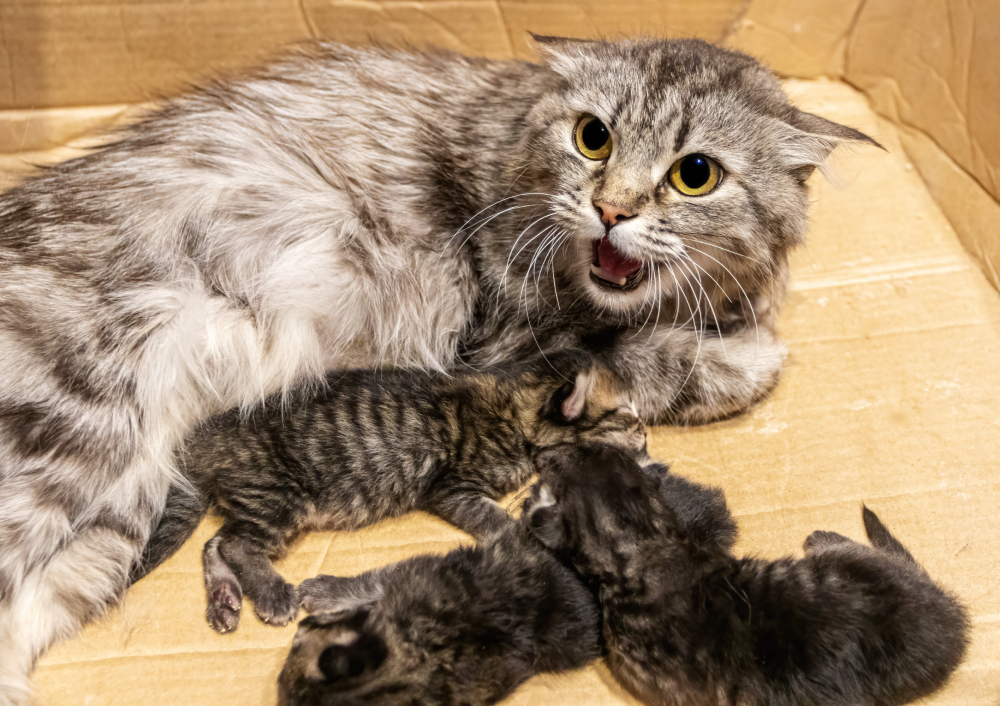

What Types of Medical Issues Can Cause Aggression in Cats?
Other Tips for Aggression Management

Conclusion


